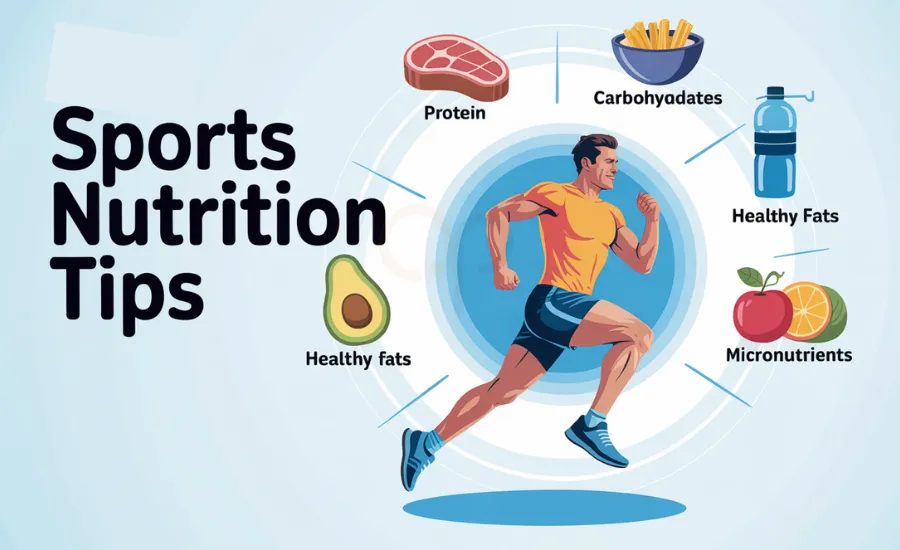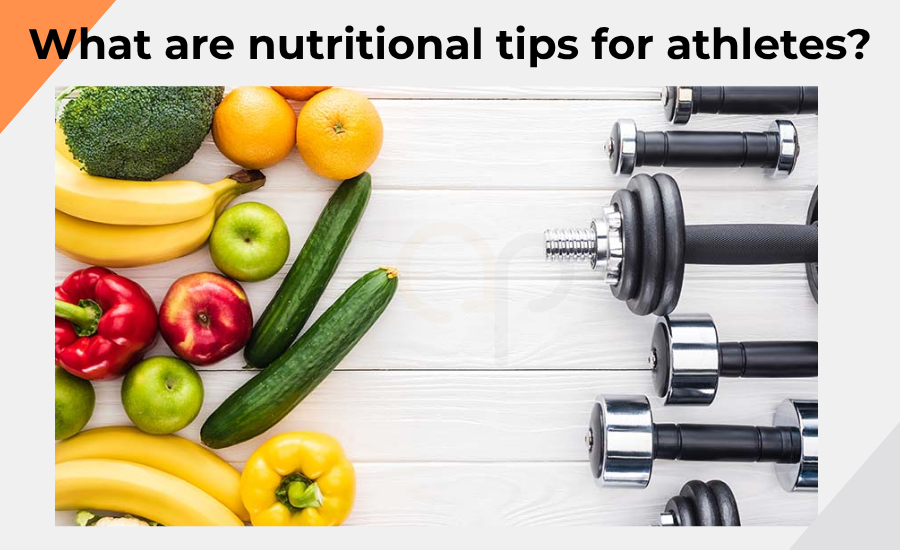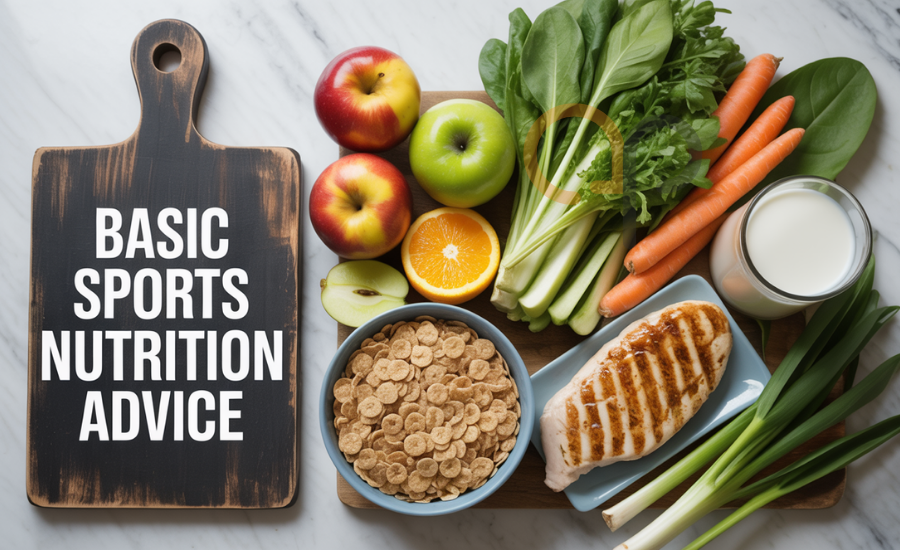Top Sports Nutrition Tips for Peak Performance

For excellent athletic achievements, athletes should pay attention to a healthy and well-balanced diet rich in proteins, carbohydrates, and healthy fats; good hydration; and adequate micronutrient intake. Use whole foods, time meals around exercise, and understand supplementation when athletes have to perform better and recover. Let's discuss the sports nutrition tips.
Key Sports Nutrition Tips:
Carbohydrates:
- Food for exercise, especially compound carbohydrates like all grains, fruits, and vegetables.
Proteins
- Important for muscle repair and selecting poor sources like eggs, chicken, fish, etc.
Healthy Fats
Supply energy and help overall health, including avocados, nuts, oil, and olives.
Hydration
Drink a large quantity of water throughout the day, particularly before, during, and after exercise.
Micronutrients
- Iron, minerals, and vitamins, Calcium, and vitamin D are very important for athletes.
Timing
- Give healthy food to the body before, during, and after exercise, preferably proteins and carbs.
Supplementation
Understand supplements like caffeine or creatine, but obey the guidance of a sports medicine specialist.
Individual Needs
- Understand people's sports and needs, and get help from a sports medicine specialist to illustrate the diet.
Whole Foods
Arrange all raw foods over processed choices.
Balanced Diet
Goal for a diet that supplies 10-30% protein, 45-65% carbohydrates, and 25-35% fat.
If you are an active person or an athlete, you should have a well-balanced diet that can help you with your high achievements. This diet pattern supports you in recovering quickly. So it is true that if you want to do something, you have to face several issues at a high-intensity level.
What are nutritional tips for athletes?

1. Don’t be frightened of carbohydrates
Carbohydrates serve as a key source of energy, helping your body perform daily tasks effectively. Thus, we use this energy for our work all the time. It does not have healthy foods pasta, burgers, or bread. Vegetables, nuts, fruits, and all grains are included in healthy carbohydrates.
2. Take a lot of fluid throughout the day
Due to harsh exercises, your body will be dripping, which can bring you down to dehydration. So drink a large quantity of water and many other sports drinks."Don’t wait until you’re thirsty to drink water."
3. Eat protein
Although protein doesn’t supply energy to the body, it helps to make strong muscles. So we have to use high-quality protein such as fish, nuts, meat, poultry, and eggs. However, a lot of protein can lead to kidney issues. So use protamine very carefully.
4. Get proper sleep
Because proper sleep can help your body with the work of the next day. So if you lack sleep, you do not perform all your work for the whole day, even if you eat all kinds of food and drink a lot of water. Hence, make sure that you get proper sleep to have an exciting and healthy lifestyle.
5. Importance of a Healthy Diet Plan
Sports nutrition begins with a healthy diet. Take your meal as scheduled according to a healthy diet plan. Therefore, nutrient needs must be fulfilled through heavy food.
6. Keep the amount of fat moderate
Athletes also need fat in the same amount as common people do. To use the total fat demand of 20-35 percent of calories, some fatty foods should come from sources of monounsaturated and configuration fatty acids.
7. Maintain Energy Balance
Maintaining energy balance over time to access and preserve a healthy weight is essential to athletic aims. So waste most calories from heavy foods and gain a lot of energy that helps with your daily workouts.
8. Plenty of Produce
With the use of a vast variety of colorful fruits and vegetables, we can reduce infection, harm to muscles, and anxiety from oxidation.
9. Importance of Iron
Iron is also useful for gaining oxygen for muscles. The food that we get from plants, like pumpkin seeds. Beans, potatoes, and lentils have a lot of iron. A number of vitamins are found in this food. So use this food for energy.
10. Electrolyte Balance
Potassium, sodium, and other metals are easily gained in a healthy diet. So, for an endurance athlete, there is no need for any supplement.
11. Before- and after-workout breakfast
The amount of breakfast depends on the capacity and duration of exercise. So, an athlete should eat low amounts of fiber and food that is not spicy.
Basic sports nutrition advice

When we discuss sports nutrition, we recommend a lot of factors involving training experience, sports position, and on/off status. However, a large quantity of sports nutrition become necessary for many athletes, according to their sport.
To support high density or completion, focus on teaching sport and a variety of nutrient foods from the five fundamental food classes:
- fruits
- vegetables
- grains
- Thin proteins
- low-fat dairy
The common meal you want to eat increases its nutritional value. You should also minimize extra preservatives and avoid added sodium. At this time, it is right to eat a prepared meal.
Here are the particular things to pay attention to when developing a high-achievement eating plan:
- Involve a vast variety of vegetables and fruits that supply essential minerals, vitamins, and phytonutrients.
- Involve a variety of lean proteins like chicken, pork, fish, eggs, turkey, soy products, and meat alternatives.
- Enhance your profit from low-fat dairy.
- Using oils like olive oil instead of margarine and butter improves your intake of healthy fats.
- Pay attention to foods that are high in fiber, potassium, vitamin D, and calcium, as these nutrients tend to be efficient in historical diets.
- By beginning with these fundamental eating rules, you’ll be well on your way to developing a high-achievement diet and guiding your teaching through nutrition.
What is a nutritional recommendation for athletes?
The nutrition of athletes recommends the same diet as other people."Carbohydrates provide between 45% and 65% of the body's total energy intake."
15 to 25% of protein. 20 to 35% of fat.
What are the nutrition techniques for athletes?
During training, athletes should eat a healthy and balanced diet of about 60% carbohydrates, 20% protein, and 20% fat. This diet is vital for athletes.
What are the fundamentals of sports nutrition?
"Athletes benefit from eating a wide range of fruits and vegetables, which provide essential vitamins, minerals, and plant-based nutrients."
They also use a variety of lean proteins like pork, egg, fish, and Turkey soy products.
What to eat before sports?
Good diet selection involves:
- An energy bar
- An apple, a banana, or other fresh fruit
- Yogurt
- A fruit smoothie
- A whole-grain bagel or crackers
- A low-fat granola bar
- A peanut butter sandwich
- Sports drink or diluted juice
Summary
The right sports nutrition supports athletes in developing strength, recovering quickly, and remaining strong. Simple, smart attitudes make a huge difference.
By obeying these sports nutrition tips for athletes, you’ll be on your path to better achievements, further patience, and avoiding injuries. "Start small, stay consistent, and give your best effort like a champion."